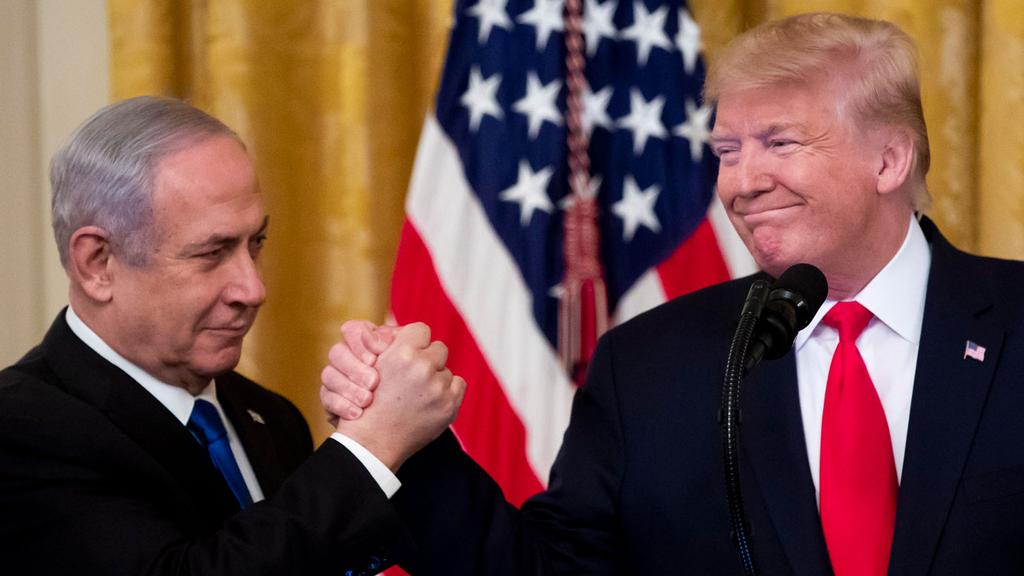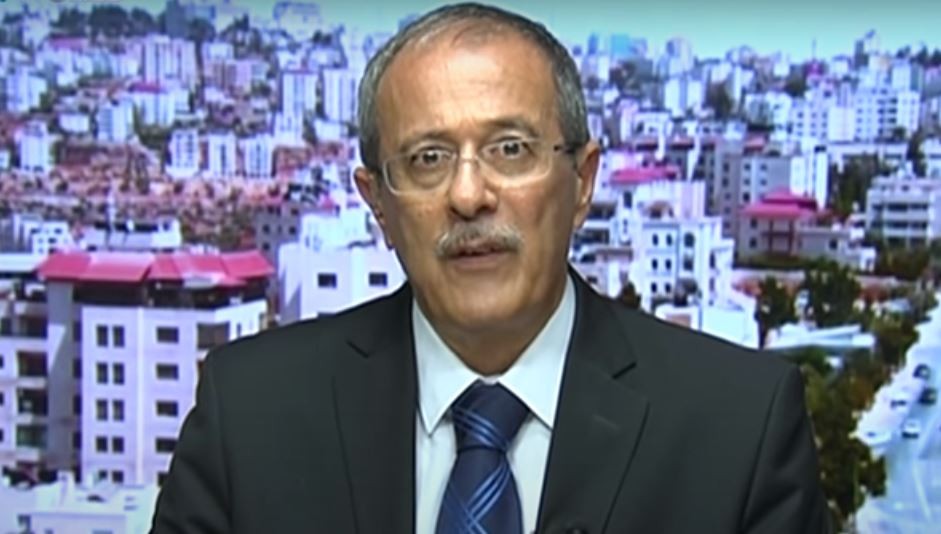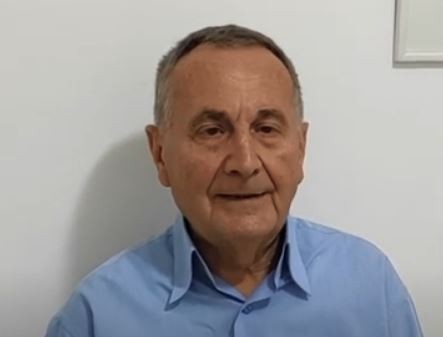July 1 has come and gone, and to no one’s real surprise, Israel’s borders have remained unchanged, with Prime Minister Benjamin Netanyahu’s aggressively promoted annexation plan still missing in action.
After Netanyahu’s coalition partners punched yet another hole in his annexation balloon this week – with Foreign Minister Gabi Ashkenazi declaring that “it probably won’t happen” in the immediate future - American, Palestinian and Israeli experts and analysts take a look at where the sides are expected to go from here, and what can be done in the coming weeks to advance the elusive cause of peace.
10 View gallery


Protesters decorate the words 'The nation against annexation' outside Tel Aviv Museum of Art on Saturday
(Photo: Moti Kimchi)
“Nobody on our side knows anything,” says Ghassan Khatib, vice president for development and communications at Birzeit University in the West Bank and a former minister in the Palestinian Authority.
Khatib, who was a member of the Palestinian delegation to the Madrid Middle East Peace Conference in 1991 and subsequent bilateral negotiations, says Palestinian leaders are “watching and following the developments, but don’t see any specific decisions.”
If Israel’s declarations of annexation do come to fruition, Khatib takes the PA – which warned that it would sever all ties and security cooperation with Israel in such a case − at its word.
“They will not be obliged by any agreement and will end any kind of interaction or relations with [Israel]. The officials don’t say what that actually means, but I think it means the collapse of the PA and the end of the current status quo,” he said.
A “collapse of the PA” would mean the effective termination of the Oslo Accords, by which civil authority and responsibility over Palestinian villages and cities in the West Bank were handed over from the Israeli government to the Palestinian leadership starting in 1994.
As to steps the Palestinian leadership may take in case the annexation falls through, or regarding a return to the negotiating table, Khatib is not optimistic either.
“I don’t see a breakthrough happening. I assume they will return to the previous level of cooperation [with Israel]," he says. "The initiative is in the hands of the Israelis.”
'Peace plan, not annexation plan'
David Makovsky, distinguished fellow at the Washington Institute for Near East Policy, details the obstacles facing Netanyahu.
“There seems to be a double impasse: between Netanyahu and [Alternate Prime Minister and Defense Minister Benny] Gantz and between the White House and Netanyahu," he says.
"The administration has always viewed this as a peace plan and not as an annexation plan, and the White House has almost empowered Gantz and Ashkenazi by saying they want a consensus [on annexation] in Israel [before giving the green light].”
U.S. President Donald Trump’s “Peace to Prosperity” plan, unveiled in January, calls for the transfer of about 30% of the West Bank, territory conquered in the 1967 Six-Day War and on which most of the Israeli settlements are located – to Israel, while also supporting the creation of an independent and sovereign Palestinian state.
It is by far the most Israel-friendly proposal ever put forward by the U.S.
Immediately after the plan was ceremoniously announced, Netanyahu declared he would push through as quickly as possible with the annexation part of the deal, while the Palestinians refused to engage and rejected the plan in its entirety.
10 View gallery


Benjamin Netanyahu clasps hands with Donald Trump as the U.S. president unveils his Mideast peace plan at the White House
(Photo: EPA)
Makovsky, who in 2013-2014 served as senior adviser to the special envoy for Israeli-Palestinian negotiation in the US State Department, says the administration “is trying to balance wanting to be amenable to Netanyahu, especially in an [American] election year, while at the same time realizing there is a lot of pushback from its friends in the Persian Gulf, Jordan and others in the Arab world.
"They’re trying to find a sweet spot, to shrink the geographics and mentions of annexation [so as not to upset the Arab world] and also offer an offsetting package deal to the Palestinians.”
10 View gallery


Palestinians protest against annexation in the West Bank city of Jericho
(Photo: Reuters)
Makovsky prescribes an entirely different approach to finding a solution to the ongoing conflict.
“You can’t hit the home run ball on this issue,” he explains. “The Venn diagram between Netanyahu and Abbas doesn’t overlap on the core issues. You have to try more confidence-building that would address the gut fears on each side, important steps that would show the public it’s not just words.”
'The status quo is ending'
Back in Jerusalem, experts are split over how much wiggle room Netanyahu has allowed for himself after months of promising to annex part of the West Bank.
Gershon Hacohen, a senior lecturer at the Begin-Sadat Center for Strategic Studies and a former major general, explains that the Israeli prime minister “was forced to re-evaluate everything because the entire system now is different than it was six months ago [when the annexation plans were announced].”
Hacohen, who recently met with Netanyahu as part of a group of former army generals who support annexation, claims that the prime minister is “attentive to suggestions and different outlooks” presented to him.
10 View gallery


Gershon Hacohen, left, and Foreign Minister Gabi Ashkenazi when both were in IDF uniform
(Photo: Michael Kramer)
“He was very interested in just listening. I could tell he was contemplating his next moves seriously," Hacohen says.
“On the one hand, Netanyahu is committed to international norms and has to adhere to the global sentiment [against annexation] and especially that of Israel’s allies.
"On the other hand, he desperately wants to take advantage of a historic opportunity, a spark that is very much similar to the one [Israel’s first prime minister David] Ben-Gurion recognized when he declared Israel’s independence. Sometimes you have to act – introduce a new vector into the equation, to shake things up and lead to positive change,” the former general says.
According to Hacohen, Israelis should realize that “doing nothing” and maintaining the status quo is not necessarily a safer bet than annexing the Jewish settlements and risking provoking the Arab world.
10 View gallery


Protesters wave Israeli and Palestinian flags at a Tel Aviv rally against annexation
(Photo: AFP)
“The status quo is ending,” Hacohen says. “We say [to Netanyahu]: ‘Yes, make the decision [to annex]; if a battle ensues, the Israeli people know how to fight.”
Shlomo Brom, a senior researcher at the Institute for National Security Studies in Tel Aviv and a retired IDF brigadier general, sees things differently.
“It all begins and ends with Netanyahu’s trial [on corruption charges]," he says.
"The whole annexation idea was his invention, because he thought it would help him politically, and assumed that the Americans would support it for their own political reasons.”
According to Brom, both of Netanyahu’s assessments failed to materialize.
Public polling has consistently shown that much of Netanyahu’s right-wing base, dreading a coronavirus-induced financial collapse, seems uninterested in annexation.
As to the support of the White House, Brom says that it is actually the opposition on the Democratic side of the aisle that seems to be the louder voice emanating from Washington.
“If [presumptive Democratic presidential nominee Joe] Biden wins the election, the response to a unilateral annexation will be harsh, maybe including some sort of punishments,” he warns.
“The Trump plan was stillborn,” says Brom. “It was obvious from day one it didn’t stand a chance, and anyone who knows anything about the conflict would tell you that back then.”
10 View gallery


Prime Minister Benjamin Netanyahu meeting with senior White House aide Jared Kushner in Jerusalem
(Photo: Matty Stern/U.S. Embassy Jerusalem)
Still, he does see a scenario in which Netanyahu will be unable to find the ladder he needs to climb down off the annexation tree.
“He may have gotten himself into such a tangled mess, that he won’t be able to get out and will have to go forward with some annexation that will get us all in trouble.”
As for any sort of substantial breakthrough in the peace talks, Brom recommends patience.
“We have to wait for the American, Israeli − and probably Palestinian − governments, to change. It seems [Palestinian President Mahmoud] Abbas is too weak to effect change. A leader needs political clout and public legitimacy. We’ll just have to wait.”
Article written by Uri Cohen
Reprinted with permission from The Media Line





